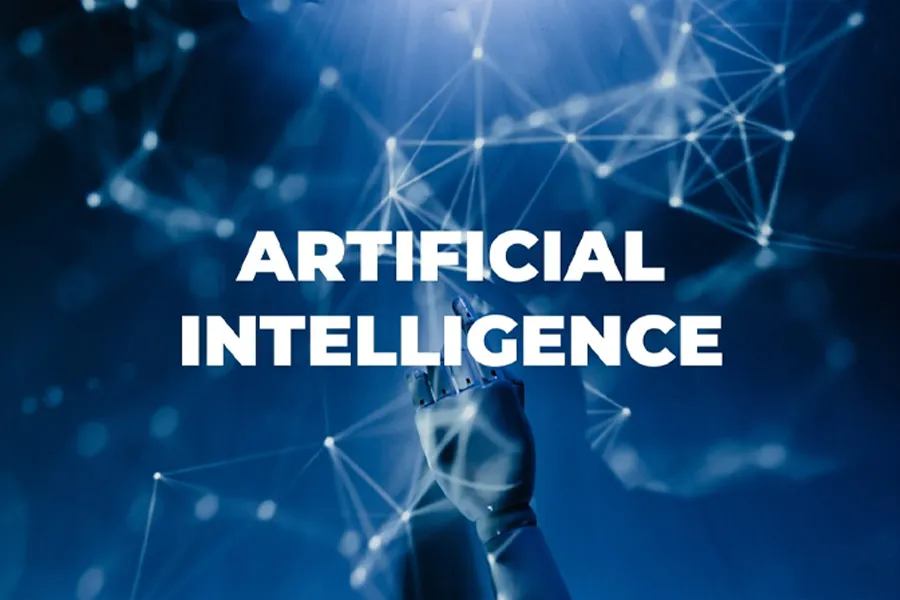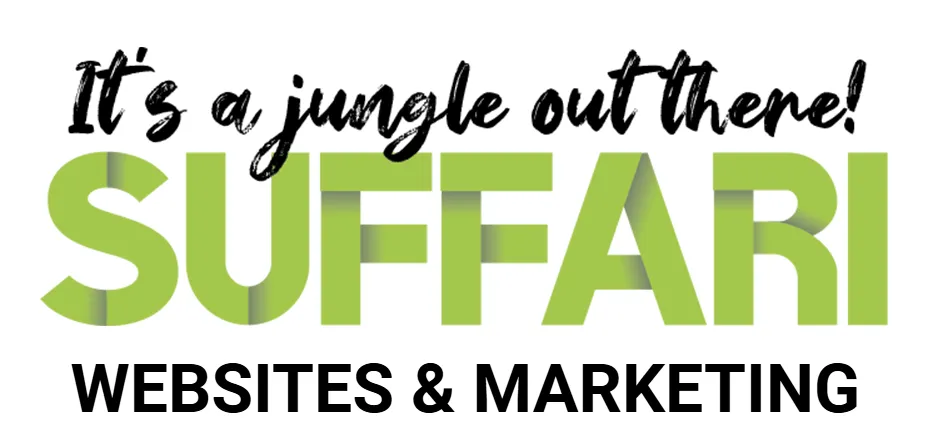
Is SEO Dead With AI? - Suffari
Is traditional SEO dead now that Google has released it's Artificial Intelligence overview taking up the top spot on the search engine? Well, it's a fact that it's there taking up the top spot - that's for sure. However, like everything else in life, SEO is just evolving, not dead. You just have to attempt to keep up and not get left behind. Let us show you how Ai is changing the SEO industry, where we are currently at, and how to utilize these changes for the better and not be taken over by them.
Table of Contents
Is SEO Dead With AI? - Suffari
Is SEO Dead because of AI? Has AI killed traditional SEO?
Understanding the Current State of SEO in the Age of AI
Evolution of SEO Strategies with AI Integration
The Rise of AI-Driven Content Creation
AI’s Impact on Search Engine Algorithms
Shifts in Keyword Optimization and User Intent
Debunking the Myth: Is SEO Truly Dead?
Historical Perspective on SEO's Resilience
Case Studies Showing SEO’s Continued Relevance
How SEO Adapts to Technological Changes
The Role of Artificial Intelligence in Modern SEO
AI Tools for Keyword Research and Data Analysis
Automated Content Generation and Optimization
AI-Powered Personalization and User Experience
Challenges and Limitations of AI in SEO
Quality Control and Authenticity Concerns
Algorithmic Bias and Ethical Considerations
Dependence on AI and Potential Risks
Strategies for Staying Relevant in an AI-Integrated SEO Landscape
Emphasizing Human-Centered Content
Leveraging AI as a Complementary Tool
Focusing on Technical SEO and Website Integrity
Continuous Learning and Adaptation to Trends
The Future of SEO in an AI-Driven World
Emerging Technologies and Innovations
Predicted Changes in Search Behavior
Is SEO Dead because of AI? Has AI killed traditional SEO?
No. SEO is not dead. It is transforming into a more sophisticated discipline that leverages AI to better serve user needs. Success now depends on understanding evolving user behaviors and creating high-quality, intent-focused content. Businesses that adapt quickly to these shifts will continue to thrive in search rankings, while those relying solely on old practices may fall behind.

Understanding the Current State of SEO in the Age of AI
As artificial intelligence continues to revolutionize the digital landscape, many wonder if traditional SEO practices are becoming obsolete. Understanding the current state of SEO in the age of AI is essential for marketers and content creators aiming to stay ahead of the curve. This article explores whether SEO is dead with AI or if it has simply transformed into a new, more sophisticated discipline.
Evolution of SEO Strategies with AI Integration
As artificial intelligence continues to advance, many question whether traditional SEO practices are becoming obsolete or if they are merely evolving. The integration of AI into search engines and digital marketing strategies has significantly transformed how content is created, optimized, and ranked. While some believe that AI's ability to understand natural language and user intent diminishes the importance of keyword stuffing and backlink tactics, others argue that SEO is not dead but in a state of rapid evolution.
Modern SEO strategies now heavily rely on AI-powered tools to analyze vast amounts of data, predict user behavior, and personalize search results. Techniques such as semantic search optimization, voice search, and AI-driven content generation have emerged as essential components of an effective SEO plan. This shift emphasizes quality, relevance, and user experience over traditional keyword density, making SEO more sophisticated and user-centric than ever before.
In conclusion, while AI has disrupted traditional SEO methods, it has also opened new avenues for marketers to innovate and better serve their audiences. Rather than being dead, SEO is transforming into a more dynamic and intelligent discipline, requiring adaptation and continuous learning to stay ahead in the competitive digital landscape.
The Rise of AI-Driven Content Creation
As AI continues to revolutionize the digital landscape, many question whether traditional SEO practices are becoming obsolete. The rise of AI-driven content creation tools has transformed how content is generated, optimized, and ranked, prompting a reevaluation of SEO strategies. While some argue that AI diminishes the importance of keywords and backlinks, others believe it enhances the ability to deliver highly relevant and personalized content to users.
AI's capabilities in analyzing vast amounts of data enable search engines to better understand user intent and context, making SEO more sophisticated than ever. Instead of rendering SEO dead, AI is pushing marketers to adopt smarter, more adaptive approaches such as focusing on user experience, semantic search, and high-quality content. Ultimately, success in the age of AI requires integrating innovative technology with foundational SEO principles to stay competitive.
AI’s Impact on Search Engine Algorithms
As artificial intelligence continues to evolve, many experts are questioning whether traditional SEO strategies remain effective or if SEO is essentially dead in the age of AI. AI has significantly transformed search engine algorithms by enabling more sophisticated understanding of user intent, context, and content quality, moving beyond keyword matching to semantic analysis. This shift means that optimizing solely for keywords is no longer sufficient; instead, focus must now be on creating valuable, comprehensive content that meets user needs. While some fear that AI-powered search engines diminish the importance of SEO, others see it as an opportunity to refine and innovate strategies to better align with how modern algorithms interpret relevance and authority. Ultimately, SEO is not dead but is evolving rapidly, requiring marketers to adapt to new standards driven by AI advancements.
Shifts in Keyword Optimization and User Intent
As artificial intelligence continues to evolve, the landscape of SEO is undergoing significant transformations. The traditional focus on keyword density and exact match queries is shifting toward understanding user intent and delivering more personalized, relevant content. AI-powered algorithms now prioritize context, semantic relevance, and user experience, prompting marketers to rethink their SEO strategies.
Shifts in Keyword Optimization: Instead of obsessing over specific keywords, SEO efforts are increasingly centered around long-tail phrases and natural language queries that reflect how users actually speak and search.
User Intent as a Core Focus: Modern SEO emphasizes understanding the purpose behind searches—whether informational, transactional, or navigational—and tailoring content accordingly.
The Role of AI in Content Creation and Analysis: AI tools assist in generating optimized content, analyzing search patterns, and predicting emerging trends, making SEO more dynamic and data-driven.
Impact on SEO Strategies: While some argue that traditional tactics are becoming obsolete, others believe that adapting to AI-driven changes is essential for maintaining visibility and competitiveness.

Debunking the Myth: Is SEO Truly Dead?
In recent years, the rapid rise of artificial intelligence has sparked widespread debates about the future of Search Engine Optimization. Many question whether SEO is still a viable strategy or if it has become obsolete in the age of AI-driven algorithms. This article aims to debunk the myth that SEO is dead by exploring how AI is transforming, rather than ending, the world of search engine optimization.
Historical Perspective on SEO's Resilience
Historical perspective on SEO reveals its remarkable resilience despite numerous technological shifts, including the rise of AI. When search engines first emerged, SEO strategies focused heavily on keyword stuffing and backlinks. Over time, these methods evolved as algorithms became more sophisticated, prioritizing user experience and relevance. The advent of AI has certainly transformed how search engines interpret content, but rather than making SEO obsolete, it has shifted the focus toward quality content and user intent.
Early days of SEO emphasized keyword density and basic link-building tactics.
Algorithm updates like Google Penguin and Panda aimed to penalize manipulative practices, encouraging better content quality.
The integration of AI through updates like BERT and RankBrain improved understanding of natural language, making SEO more about relevance than trickery.
Today, successful SEO involves optimizing for user intent and providing valuable, well-structured content that aligns with AI-driven search interpretations.
In essence, SEO has continuously adapted to technological advancements, including AI, proving that it is far from dead. Instead, it remains a dynamic field that requires ongoing innovation and alignment with evolving search engine capabilities.
Case Studies Showing SEO’s Continued Relevance
Many believe that the rise of AI and advanced algorithms has rendered traditional SEO obsolete. However, case studies consistently demonstrate that SEO remains a vital component of digital marketing, even amidst AI advancements. Strategic SEO practices continue to drive organic traffic, enhance visibility, and support overall business growth.
Case Study 1: E-commerce Platform Optimization - An online retailer integrated AI-driven product recommendations with traditional SEO tactics. Despite the AI enhancements, their organic search traffic increased by 35% in six months, proving that well-optimized content remains essential.
Case Study 2: Local Business Visibility - A local service provider optimized their Google My Business profile and applied keyword strategies aligned with AI-powered search features. Results showed a 50% uptick in local inquiries, reinforcing SEO’s ongoing importance for local visibility.
Case Study 3: Content Marketing Success - A SaaS company used AI tools for content creation but coupled this with SEO best practices. They experienced a 100% growth in organic leads within a year, demonstrating that AI can supplement but not replace traditional SEO methods.
These examples highlight that SEO is not dead but evolving. When combined with AI, SEO strategies become more sophisticated and targeted, ensuring businesses continue to thrive in the digital landscape.
How SEO Adapts to Technological Changes
Many believe that SEO is becoming obsolete in the age of AI, but the truth is quite the opposite. While AI technologies have transformed how search engines operate, SEO continues to evolve rather than die. Search engines now prioritize user experience, context, and intent, which require SEO professionals to adapt their strategies accordingly. Techniques such as optimizing for voice search, leveraging structured data, and creating high-quality content remain essential, but they now integrate advanced AI tools to enhance effectiveness.
SEO adapts to technological changes by embracing artificial intelligence and machine learning algorithms. These advancements enable search engines to better understand language nuances, semantic search, and personalized experiences. As a result, SEO specialists focus more on creating relevant, engaging content and technical optimization that align with AI-driven ranking factors. In this way, SEO remains a vital part of digital marketing, continuously evolving alongside technological innovations rather than becoming irrelevant or dead.

The Role of Artificial Intelligence in Modern SEO
Artificial Intelligence has revolutionized the landscape of modern SEO, transforming how websites are optimized for search engines. With advanced algorithms and machine learning capabilities, AI enables more personalized, efficient, and accurate strategies to improve online visibility. As AI continues to evolve, it prompts a reevaluation of traditional SEO practices and raises questions about the future relevance of SEO in an increasingly automated digital world.
AI Tools for Keyword Research and Data Analysis
Artificial Intelligence has revolutionized modern SEO, transforming how businesses approach search engine optimization. AI tools enable marketers to analyze vast amounts of data quickly, identify trending keywords, and optimize content more effectively. As AI continues to advance, it raises questions about whether traditional SEO strategies are becoming obsolete or if they are simply evolving to incorporate new techniques.
Key AI tools for keyword research and data analysis include:
AI-powered keyword generators that suggest high-ranking and relevant keywords based on user intent
Data analysis platforms that interpret large datasets to uncover trends and opportunities
Content optimization tools that analyze existing site content to improve rankings
Predictive analytics software that forecasts search trends and user behaviors
Competitor analysis tools that leverage AI to evaluate the strengths and weaknesses of rivals
While AI enhances and streamlines SEO efforts, it does not render SEO dead. Instead, it shifts the focus towards more data-driven, strategic, and personalized approaches. Successful SEO in the age of AI involves leveraging these tools wisely while maintaining quality content and user experience at the core of digital marketing strategies.
Automated Content Generation and Optimization
Artificial Intelligence has revolutionized modern SEO by enabling more sophisticated and automated approaches to content creation and website optimization. AI tools can analyze vast amounts of data to identify trends, keywords, and user behavior patterns, allowing for highly targeted strategies that improve search engine rankings. Automated content generation powered by AI helps produce relevant, engaging, and optimized content at scale, reducing the time and effort traditionally required for manual writing. Additionally, AI-driven optimization tools can continuously monitor website performance, suggest improvements, and adapt to algorithm changes, ensuring that websites remain competitive. While some question if SEO is dead with AI's rise, it actually signifies an evolution where human expertise is complemented by intelligent automation, rather than replaced entirely, making SEO more efficient and effective than ever before.
AI-Powered Personalization and User Experience
Artificial Intelligence is fundamentally transforming modern SEO by enabling more sophisticated analysis, automation, and personalization. As AI tools become more advanced, they are redefining how websites optimize content and improve user engagement, raising questions about whether traditional SEO practices are still relevant or if SEO is essentially dead in the age of AI.
One of the most significant impacts of AI is in AI-powered personalization and user experience. These technologies allow websites to deliver tailored content based on individual user behavior, preferences, and browsing history, resulting in higher engagement and conversion rates. This shift toward personalization means that generic SEO strategies are less effective, emphasizing the importance of AI-driven insights and customization.
AI algorithms analyze vast amounts of data quickly to identify trending keywords and user intent, reducing reliance on manual keyword research.
Automated content creation and optimization tools help produce highly relevant content tailored to specific audience segments.
Machine learning enhances search engine algorithms, making rankings more nuanced and difficult to manipulate through traditional SEO tactics.
Personalization engines dynamically adjust website elements to improve user retention and satisfaction, fostering loyalty beyond mere search rankings.
Overall, while traditional SEO techniques may evolve or diminish in importance, the role of artificial intelligence underscores a shift toward user-centric optimization. This evolution suggests that SEO is not dead but transformed, with AI serving as a critical tool for achieving better visibility and user engagement in the modern digital landscape.

Challenges and Limitations of AI in SEO
As artificial intelligence continues to revolutionize the field of SEO, it also presents several challenges and limitations that can impact its effectiveness. Despite its impressive capabilities, AI tools often struggle with understanding nuanced human intent, adapting to rapidly changing algorithms, and maintaining ethical standards. These hurdles raise questions about the sustainability and reliability of AI-driven SEO strategies in an ever-evolving digital landscape.
Quality Control and Authenticity Concerns
The integration of AI into SEO has brought significant advancements, but it also presents notable challenges and limitations that raise questions about the sustainability and authenticity of AI-driven strategies. As AI tools become more sophisticated, concerns around quality control and maintaining genuine content have intensified, prompting marketers to reassess the impact on traditional SEO practices.
Content Authenticity: AI-generated content may lack the human touch and nuanced understanding, leading to questions about its authenticity and trustworthiness.
Quality Control: Ensuring consistently high-quality output from AI tools remains difficult, often requiring extensive human oversight to avoid errors or misleading information.
Algorithm Dependence: Heavy reliance on AI algorithms can result in an over-optimization that may be penalized by search engines, reducing long-term effectiveness.
Ethical Concerns: The use of AI raises ethical issues related to originality, plagiarism, and the potential spread of misinformation.
Limitations in Creativity: AI struggles with creating truly innovative or emotionally resonant content, which is vital for engaging audiences and maintaining brand authenticity.
Adaptability Challenges: Search engine algorithms evolve rapidly, and AI systems need continuous updates, making it difficult to stay ahead and maintain rankings effectively.
Overall, while AI can complement SEO efforts, these challenges highlight that the technology alone may not fully replace traditional SEO methods. The question of whether SEO is dead with AI remains open, emphasizing the importance of human oversight and ethical considerations in digital marketing strategies.
Algorithmic Bias and Ethical Considerations
While AI has revolutionized SEO strategies, there are significant challenges and limitations that must be addressed. Algorithmic bias can lead to skewed search results, affecting fairness and accuracy, which in turn undermines user trust and the effectiveness of AI-driven SEO. Additionally, ethical considerations, such as data privacy, transparency, and accountability, raise concerns about how AI systems are trained and deployed in search engine optimization. These issues highlight that despite advancements, AI's role in SEO is not without its complexities and potential pitfalls.
Dependence on AI and Potential Risks
As AI continues to evolve and become integral to SEO strategies, several challenges and limitations emerge that question its longevity and effectiveness. While AI offers remarkable capabilities in data analysis and content creation, reliance on it also introduces potential risks and dependency concerns that could impact the future of SEO.
Limited Understanding of Context: AI algorithms often struggle to grasp nuanced language, cultural references, or complex user intents, which can lead to suboptimal SEO outcomes.
Over-Optimization Risks: Heavy dependence on AI tools might cause websites to over-optimize, resulting in penalties from search engines for spammy or unnatural content.
Data Privacy Concerns: Utilizing AI requires vast amounts of data, raising privacy issues and potential regulatory challenges that could hinder SEO efforts.
Dependence on Technology: Relying heavily on AI tools may reduce human oversight and creativity, making SEO strategies vulnerable if the AI systems fail or produce inaccurate results.
Potential for Algorithm Manipulation: As AI becomes more sophisticated, malicious actors might exploit AI-driven SEO tactics, leading to manipulative practices that undermine fair search rankings.
Limitations in Creativity and Originality: Despite advances, AI-generated content may lack genuine originality and emotional connection, which are crucial for engaging users and maintaining long-term SEO success.

Strategies for Staying Relevant in an AI-Integrated SEO Landscape
As artificial intelligence becomes increasingly integrated into search engine optimization, it raises important questions about the future relevance of traditional SEO strategies. Navigating this evolving landscape requires adaptability and innovative approaches to ensure visibility and competitive edge. In this article, we explore effective strategies for staying relevant in an AI-driven SEO environment, addressing concerns about whether SEO is truly dead with the rise of AI technologies.
Emphasizing Human-Centered Content
In an AI-integrated SEO landscape, maintaining relevance requires a strong emphasis on human-centered content that prioritizes genuine value and authentic engagement. As search engines increasingly utilize AI to evaluate quality, creating content that resonates with human emotions, needs, and experiences becomes paramount. By focusing on storytelling, empathy, and expertise, content creators can differentiate themselves from automated or purely keyword-driven approaches.
Strategies such as investing in thorough research, understanding your audience deeply, and crafting personalized content help build trust and authority. Additionally, integrating multimedia elements like videos and infographics enhances user experience and encourages longer site visits, signaling quality to search algorithms. Staying updated on AI developments allows marketers to adapt their tactics proactively, ensuring their content remains relevant and competitive in this evolving landscape.
Leveraging AI as a Complementary Tool
In an AI-integrated SEO landscape, staying relevant requires a strategic approach that leverages AI as a complementary tool rather than viewing it as a threat. Marketers and content creators should focus on enhancing their understanding of AI-driven analytics and automation to optimize their content more effectively. By integrating AI tools for keyword research, content suggestions, and user experience analysis, businesses can stay ahead of the curve and adapt to evolving search engine algorithms.
Additionally, prioritizing high-quality, human-centric content remains crucial, as AI cannot fully replicate authentic insights, storytelling, and emotional engagement. Developing a deep understanding of user intent and providing personalized experiences will differentiate brands in a crowded digital space. Continuous learning about emerging AI capabilities and adjusting strategies accordingly ensures that SEO efforts remain effective despite rapid technological shifts.
Ultimately, embracing AI as an ally—using it to analyze data, automate routine tasks, and generate ideas—can enhance traditional SEO practices. This integrated approach allows marketers to be more agile, innovative, and aligned with current trends, proving that SEO is not dead but evolving alongside AI advancements.
Focusing on Technical SEO and Website Integrity
In an AI-integrated SEO landscape, maintaining relevance requires a strong focus on technical SEO and website integrity. As AI systems become more adept at understanding content, the foundation of a well-optimized technical infrastructure remains crucial for visibility and ranking.
Prioritize website speed, mobile responsiveness, and secure connections to ensure that search engines can efficiently crawl and index your site. Regularly audit your website for broken links, duplicate content, and crawl errors to maintain optimal health and performance.
Implement structured data markup to help AI understand your content contextually, enhancing your chances of appearing in rich snippets and featured snippets. Staying updated with evolving search engine algorithms and AI-driven ranking factors allows you to adapt your strategies proactively.
Invest in comprehensive site audits and utilize tools that monitor website integrity, ensuring consistent user experience and adherence to best practices. Ultimately, blending robust technical SEO with ongoing website maintenance is essential to stay relevant in an AI-augmented SEO environment, proving that SEO is not dead but evolving.
Continuous Learning and Adaptation to Trends
In an AI-integrated SEO landscape, staying relevant requires continuous adaptation and strategic thinking. As AI tools increasingly influence search algorithms, marketers must focus on blending traditional SEO techniques with innovative approaches to remain competitive.
One effective strategy is to prioritize quality content that provides real value to users. AI can analyze vast amounts of data, but human insight remains essential for creating engaging, authoritative material that answers user intent effectively.
Staying updated with the latest trends in AI and search engine algorithms is crucial. Regularly following industry news, participating in webinars, and enrolling in courses can help professionals understand how AI impacts SEO and what new tactics to implement.
Investing in ongoing learning about emerging technologies, such as natural language processing and machine learning, allows SEO practitioners to optimize their strategies accordingly. Adapting keyword research to include semantic and conversational queries ensures content aligns with evolving search behaviors.
Finally, embracing a flexible mindset and experimenting with new tools and techniques can lead to discovering unique opportunities. By continuously monitoring performance metrics and adjusting tactics, businesses can maintain visibility and relevance in an AI-driven search environment.

The Future of SEO in an AI-Driven World
As artificial intelligence continues to revolutionize the digital landscape, many wonder what its impact will be on traditional search engine optimization. The evolving AI-driven world raises questions about the relevance and future of SEO strategies. This article explores whether SEO is truly dead or just transforming in an era dominated by intelligent algorithms and machine learning.
Emerging Technologies and Innovations
As artificial intelligence continues to evolve and dominate the digital landscape, many question whether traditional SEO methods are becoming obsolete. However, rather than rendering SEO dead, AI is transforming its role, pushing marketers to adopt more innovative and intelligent strategies. Emerging technologies such as natural language processing, voice search optimization, and machine learning algorithms are reshaping how content is created and ranked, emphasizing quality, relevance, and user intent over keyword stuffing.
In an AI-driven world, future SEO will likely focus on personalized experiences and semantic search, where understanding context and user needs takes precedence. Innovations like AI-powered chatbots, predictive analytics, and automated content generation will make SEO more dynamic, requiring marketers to stay ahead of technological trends. Ultimately, SEO's core purpose—to connect users with valuable information—remains unchanged, but its methods will continue to evolve alongside advancements in AI and related technologies.
Predicted Changes in Search Behavior
As artificial intelligence continues to advance, the landscape of search engine optimization is undergoing significant transformation. Many wonder whether traditional SEO practices are becoming obsolete or if they will evolve to meet new search behaviors driven by AI technology.
Personalized Search Experiences: AI enables search engines to deliver highly tailored results based on user intent, preferences, and behavior, making generic keyword strategies less effective.
Shift Towards Conversational Search: With the rise of voice assistants and chatbots, optimizing for natural language queries and long-tail phrases becomes crucial, shifting focus from keywords to context and intent.
Emphasis on Quality Content: AI algorithms prioritize authoritative, relevant, and engaging content, pushing SEO towards creating value-driven material rather than keyword stuffing.
Technical SEO Adaptations: Structured data, schema markup, and website architecture are increasingly important as AI improves its ability to understand and interpret website content efficiently.
Changing Metrics of Success: Traditional rankings may become less indicative of success; instead, engagement metrics, user satisfaction, and conversion rates will take center stage in measuring SEO effectiveness.
While the core principles of providing valuable content and a good user experience remain, the methods and strategies will need to adapt as AI reshapes how search engines operate. Rather than being dead, SEO is evolving into a more sophisticated, user-centric discipline suited to an AI-driven world.
Preparation Tips for SEO Professionals
The future of SEO in an AI-driven world is rapidly evolving, prompting many professionals to question whether traditional SEO strategies are becoming obsolete. As AI technology advances, it reshapes search algorithms and user behavior, making adaptability crucial for SEO success.
Preparation tips for SEO professionals to stay ahead include focusing on creating high-quality, user-centric content that aligns with evolving search engine algorithms. Embracing new tools and understanding AI-driven analytics will also be essential for maintaining competitive edge in this changing landscape.
Stay Updated with AI and Search Algorithm Developments
Prioritize Content Quality and User Experience
Leverage AI Tools for Data Analysis and Keyword Research
Develop Skills in Machine Learning and Natural Language Processing
Focus on E-A-T (Expertise, Authoritativeness, Trustworthiness) Principles
Optimize for Voice Search and Conversational Queries
Build a Strong, Ethical Backlink Profile
Continuously Experiment and Adapt Strategies Based on Data Insights

How Suffari uses AI for SEO
The digital marketing specialists at Suffari love Ai. In fact, we use it everyday for creating, expanding, and optimizing website content, finding new topics to blog about, fact checking and in-depth research, and SEO analysis and keyword research. By utilizing Ai tools and combining them with a human touch and expertise, we're able to create SEO optimized content much more affordable and effective then standard content writers. If you'd like to know more about how Suffari can help grow your online presence while also providing expert website maintenance, sign up for a Free Consultation today!























Youtube